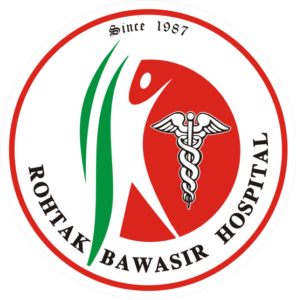How Diet Plays a Role in Managing and Preventing Piles


Updated on: 4th Jun 2024
Millions of individuals worldwide suffer from a common medical problem called piles, sometimes referred to as hemorrhoids. They develop when the rectum or anus veins swell and inflame, causing pain, discomfort, and bleeding when passing gas. Although a number of variables can lead to the formation of piles, diet is a major component in controlling current situations as well as preventing the emergence of new ones. People who are aware of the link between nutrition and piles are better able to make dietary decisions that support healthy digestion and lower the likelihood of flare-ups.
Understanding Piles and Their Causes

It’s important to comprehend the main causes of piles before exploring the role of nutrition. Hemorrhoids frequently correspond with:
- Chronic constipation: Straining during bowel movements can put pressure on the veins in the rectum and anus, leading to the development of piles.
- Diarrhea: Frequent loose stools can irritate the rectal area, contributing to hemorrhoid formation.
- Sedentary lifestyle: Lack of physical activity can slow down digestion and lead to constipation.
- Obesity: Excess weight can increase pressure on the pelvic region, contributing to piles.
- Pregnancy: The increased pressure on the pelvic area during pregnancy can cause hemorrhoids in some women.
While these factors are common, diet is one of the most controllable aspects of managing and preventing piles.
The Role of Fiber in Preventing and Managing Piles

Fiber is often hailed as the cornerstone of a healthy diet, particularly for those prone to digestive issues like piles. It plays a crucial role in softening stools, making them easier to pass, and reducing the need for straining during bowel movements.
Types of Fiber:
- Soluble Fiber: This type of fiber dissolves in water and forms a gel-like substance in the intestines. It helps to soften stools and can be found in foods like oats, beans, lentils, apples, and citrus fruits.
- Insoluble Fiber: Insoluble fiber adds bulk to the stool, helping it pass more quickly through the digestive tract. It is found in whole grains, nuts, seeds, and vegetables.
Including both types of fiber in your diet ensures that stools remain soft and easy to pass, reducing the risk of developing piles.
Recommended Daily Fiber Intake:
- The recommended daily intake of fiber is 25-30 grams for adults. However, many people consume less than this amount, increasing their risk of constipation and piles.
Incorporating Fiber-Rich Foods:
- Fruits: Apples, pears, berries, and bananas are excellent sources of fiber.
- Vegetables: Leafy greens, carrots, and broccoli are not only rich in fiber but also packed with essential vitamins and minerals.
- Whole Grains: Opt for whole grain bread, brown rice, and oatmeal instead of refined grains.
- Legumes: Beans, lentils, and chickpeas are high in fiber and protein, making them an excellent addition to your diet.
Hydration: A Crucial Component of Digestive Health

While fiber is essential for preventing and managing piles, it must be accompanied by adequate hydration. Without sufficient water intake, fiber can harden in the digestive tract, leading to constipation and exacerbating piles symptoms.
Daily Water Intake:
- It is generally recommended to drink at least 8-10 glasses of water a day. However, individual needs may vary based on factors like age, activity level, and climate.
Hydrating Foods:
- Incorporating water-rich foods like cucumbers, watermelon, and oranges can help maintain hydration levels and support digestive health.
Avoiding Dehydrating Beverages:
- Limit the intake of caffeinated and alcoholic beverages, as they can contribute to dehydration and worsen constipation.
The Impact of Diet on Inflammation

Inflammation plays a significant role in the discomfort and pain associated with piles. Certain foods can either promote or reduce inflammation, making dietary choices crucial for managing symptoms.
Anti-Inflammatory Foods:
- Omega-3 Fatty Acids: Found in fatty fish like salmon and flaxseeds, omega-3s have anti-inflammatory properties that can help reduce swelling and discomfort associated with piles.
- Fruits and Vegetables: Berries, spinach, and tomatoes are rich in antioxidants, which can help combat inflammation.
- Nuts and Seeds: Almonds, walnuts, and chia seeds are excellent sources of healthy fats and antioxidants.
Foods to Avoid:
- Processed Foods: High in trans fats and refined sugars, processed foods can promote inflammation and exacerbate piles.
- Spicy Foods: While some people tolerate spicy foods well, they can irritate the digestive tract in others and worsen hemorrhoid symptoms.
- Red Meat: Excessive consumption of red meat can lead to constipation and increase the risk of piles.
The Role of Probiotics in Digestive Health

Probiotics are beneficial bacteria that promote a healthy gut environment, which is essential for preventing constipation and supporting overall digestive health.
Sources of Probiotics:
- Yogurt: Choose plain, unsweetened yogurt with live active cultures.
- Fermented Foods: Sauerkraut, kimchi, and kefir are excellent sources of probiotics.
- Supplements: Probiotic supplements can also be beneficial, especially for those who do not consume enough probiotic-rich foods.
Benefits of Probiotics:
- Probiotics help maintain a healthy balance of gut bacteria, which can improve digestion, reduce inflammation, and prevent constipation, all of which are crucial for managing and preventing piles.
The Importance of Regular Meal Patterns

In addition to what you eat, when and how you eat can also impact your digestive health and the risk of developing piles.
Regular Meal Times:
- Eating meals at regular intervals helps maintain a consistent digestive rhythm, reducing the likelihood of constipation.
Portion Control:
- Overeating can lead to digestive discomfort and increase pressure on the rectal veins. Eating smaller, more frequent meals can prevent this.
Mindful Eating:
- Chewing food thoroughly and eating slowly can aid in digestion and prevent overeating, reducing the risk of piles.
Conclusion
Diet plays a pivotal role in managing and preventing piles by promoting healthy digestion, reducing inflammation, and preventing constipation. Incorporating a fiber-rich diet, staying hydrated, and choosing anti-inflammatory and probiotic-rich foods can significantly reduce the risk of piles and alleviate symptoms for those who already suffer from this condition. By making informed dietary choices, individuals can take proactive steps toward better digestive health and a higher quality of life, free from the discomfort of piles.
Meet Our Specialists

Dr. Raj Kumar Garg (B.A.M.S.)
40+ Years of Experience

Dr. Rahul Garg (B.A.M.S.)
15+ Years of Experience

